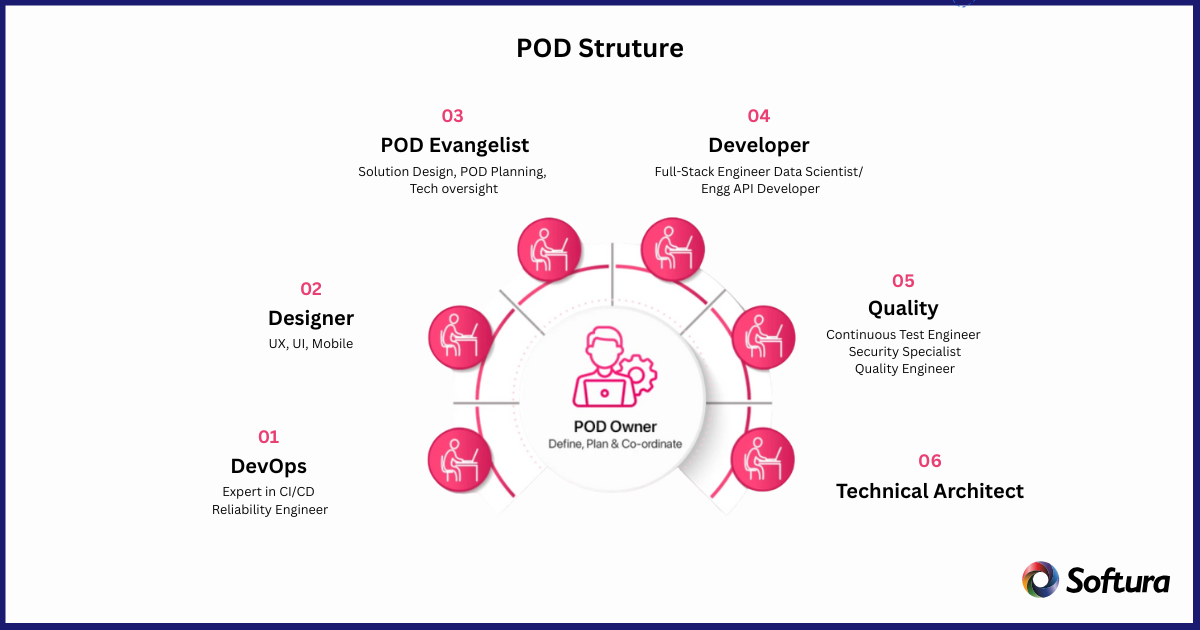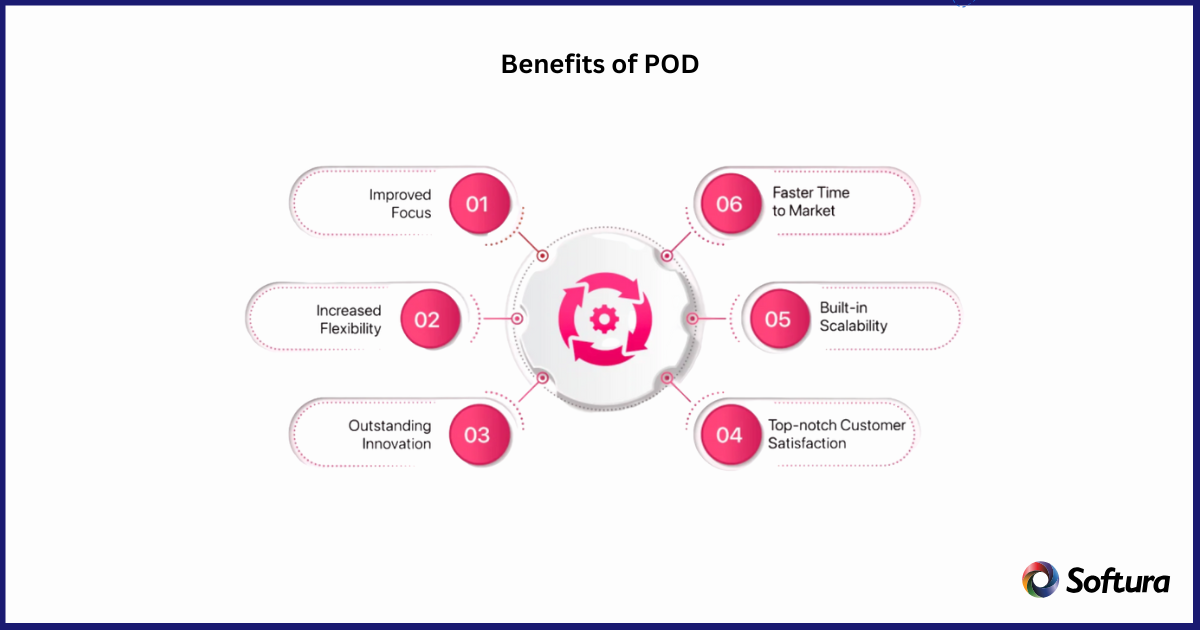"Our integration with the Google Nest smart thermostats through Aidoo Pro represents an unprecedented leap forward for our industry."
- Antonio Mediato, founder and CEO of Airzone.
Ever feel like moving a project forward is more frustrating than it should be? Whether it’s waiting on resources, navigating shifting priorities, or trying to align multiple teams, project delays can feel never-ending. It’s a familiar challenge in today’s fast-paced work environment.
But what if there was a smarter, more streamlined way to deliver results? That’s where the concept of a Project Optimized Delivery (POD) team comes in. A POD is a dedicated, cross-functional group purpose-built to execute a specific project or phase with maximum efficiency. It’s like assembling a hand-picked task force—each member brings the exact skills needed, and everyone is aligned around one clear goal. No distractions, no drawn-out ramp-up, just focused execution from day one.
So, why does this matter? Because PODs accelerate timelines, reduce overhead, and increase accountability. When you remove the usual bottlenecks and empower a unified team to own delivery end-to-end, you transform how work gets done. Let’s explore how building and leveraging PODs can be a game-changer for your next big project.
Trying to get a project off the ground — or across the finish line — can often feel like herding cats. You pull people from different departments, wait on hiring, and deal with shifting priorities. The result? Delays, misalignment, and fragmented execution.
A Project Optimized Delivery (POD) team changes all of that.
A POD is a compact, self-contained, cross-functional team built specifically for one purpose: to execute a particular project or a well-defined phase of a larger initiative. It’s not just a group of available people thrown together — it’s a carefully curated team with the exact skill sets needed to get the job done, and nothing extra to slow it down.
Picture this: you're launching a new internal dashboard for your ops team. Instead of pulling a developer from one team, a designer from another, and hoping your QA has time, your POD includes all those roles from the start. Everyone is focused only on that project, working together daily, with clear ownership and accountability.
That kind of structure gives you speed, clarity, and momentum. With a POD, you're not chasing progress — you're building it, step by step, with a team that's built for the mission
"Our integration with the Google Nest smart thermostats through Aidoo Pro represents an unprecedented leap forward for our industry."
- Antonio Mediato, founder and CEO of Airzone.
Do your software releases feel stuck in slow motion? Getting new features out can sometimes drag on forever, slowed down by endless hand-offs, approvals, and dependencies. You’re not alone — many teams face these frustrating delays, missing opportunities and feeling stuck in a cycle of “why is this so hard?”
"By analyzing the data from our connected lights, devices and systems, our goal is to create additional value for our customers through data-enabled services that unlock new capabilities and experiences."
- Harsh Chitale, leader of Philips Lighting’s Professional Business.
"By analyzing the data from our connected lights, devices and systems, our goal is to create additional value for our customers through data-enabled services that unlock new capabilities and experiences."
- Harsh Chitale, leader of Philips Lighting’s Professional Business.

"By analyzing the data from our connected lights, devices and systems, our goal is to create additional value for our customers through data-enabled services that unlock new capabilities and experiences."
- Harsh Chitale, leader of Philips Lighting’s Professional Business.
"By analyzing the data from our connected lights, devices and systems, our goal is to create additional value for our customers through data-enabled services that unlock new capabilities and experiences."
- Harsh Chitale, leader of Philips Lighting’s Professional Business.
With PODs, your software releases stop dragging and start delivering — fast, smooth, and on target.

Before we talk about the good stuff, let's quickly touch on what we're not aiming for. Think about your typical "matrix" organization or a setup where people are spread thin across several initiatives.
So, what happens when you flip the script? When you allow talent to really hone in?
1. Deep Expertise and Unrivalled Quality
When a team or even an individual can focus intently on one part of your project – say, your payment system, or your user onboarding flow, or your backend analytics engine – they become absolute wizards in that domain.
2. Faster Innovation and Problem Solving
When people are deeply familiar with their domain, they don't just fix problems; they anticipate them. They see opportunities for innovation that someone with a broader but shallower view might miss.
3. Clear Ownership and Accountability
When a team owns a specific part of the project, there's no ambiguity. They are responsible for its success, its health, and its evolution. This clarity fosters a strong sense of pride and accountability.
4. Streamlined Communication and Reduced Handoffs
One of the biggest time-wasters in project development is the handoff. Design to development, development to QA, QA to operations... each handoff is a potential point of miscommunication, delay, and error. Focused teams, especially those structured as cross-functional PODs, drastically reduce this.
So, how do you actually achieve this "precision through focus"?
By intentionally structuring your teams to foster deep focus, you're not just speeding things up; you're fundamentally elevating the quality, precision, and innovative potential of your entire project development process. It's about getting the right talent, pointing them at the right problem, and letting their concentrated brilliance shine.
So, you get it – PODs make teams faster and hiring easier. But what does that actually mean for your business? It's simple: PODs drive real, measurable outcomes that directly boost your bottom line and strategic position.
Here's how they make a difference:
When a focused POD builds a feature, it gets done quicker. This means you can launch new projects or services to customers sooner, letting you capture market opportunities and start earning revenue faster. Imagine launching that festival offer before the festival, not during or after – that's direct sales impact.
Dedicated PODs become experts in their area. They build things right the first time, leading to fewer bugs, less downtime, and more reliable projects. This reduces costly rework and keeps your customers happy, building trust and protecting your brand's reputation. Think about your crucial online services – fewer outages mean more business.
When teams have clear ownership and see their work go live quickly, they're more engaged and motivated. This means less burnout, lower employee turnover, and ultimately, more high-quality work from your talented people. Happy teams translate directly into better results.
PODs optimize how you use your people and resources. By having stable, focused teams, you reduce wasteful context-switching and avoid costly project overruns. This leads to more predictable spending and ultimately, better value for your investment. You get more done with the resources you have.
The ultimate business impact of PODs is a powerful strategic advantage. The ability to:
Is what separates the leaders from the amateurs. PODs aren't just an organizational fad; they are a proven model for structuring your project development efforts to consistently drive these real, measurable business results. They empower your teams to not just accelerate projects, but to truly deliver business value, consistently and effectively.
Drive Your Business Forward with an Offshore Dedicated Development Team
Leverage our offshore dedicated team to build scalable, secure, and future-ready mobile and web applications—ensuring faster time-to-market, cost efficiency, and high-quality delivery.